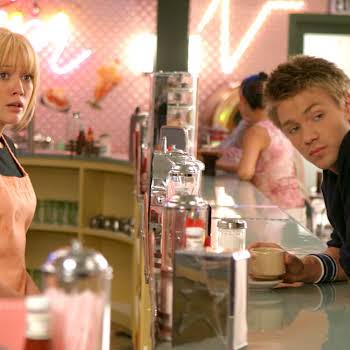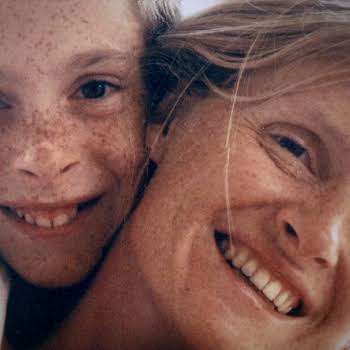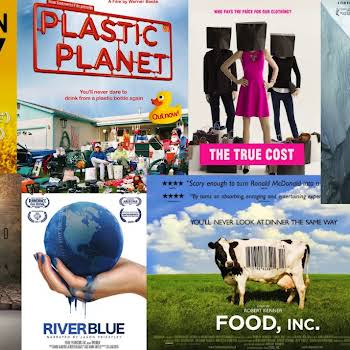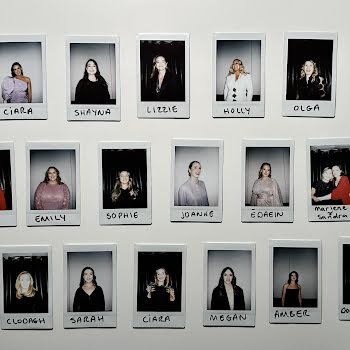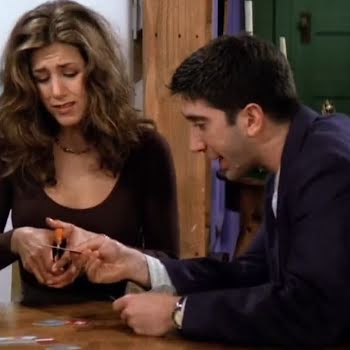When it comes to fictionalising the experiences of real life people, where do we draw the moral line?
By Sarah Gill
15th Sep 2022
15th Sep 2022
From HBO’s take on The Staircase to Hulu’s retelling of the tale of Pam and Tommy, is it ever really okay to dramatise a story without the person’s approval?
Across the board and perhaps most particularly here in Ireland, nosiness is a personality trait embedded deep into our universal psyche. We feel we have a right to the innermost workings of the lives of others.
An entitlement born from tabloid fodder, and nurtured by the rise of the internet, this demand for intimate access to the unreachable informed supply, and the film industry was quick to jump on this insatiable human compulsion for a look behind the curtain.
From The Social Network and House of Gucci to the masses of biopics, retellings, and reimaginations we’re currently experiencing an influx of, big screen dramatisations and so-called docudramas each serve to provide a fictionalised rendition of a tale based in fact.
At what point does a work of art become a violation? Is there a line drawn in the sand, with the umpteen well-received cinematic versions of Marilyn Monroe’s life standing on one side, and the controversial biographical drama Pam & Tommy on the other. Neither blonde bombshell gave their consent for their stories to take on new shapes, but did that even matter?
The most recent example of this comes in the form of HBO’s dramatisation of The Staircase. When documentarian Jean-Xavier de Lestrade opened the archives of the original, award-winning docuseries to filmmaker Antonio Campos, he effectively opened a Pandora’s Box on the Peterson family all over again.
“At that time, we were afraid he was facing the death penalty,” Michael Peterson’s eldest daughter, Margaret Ratliff revealed in a recent interview with Vanity Fair. “I thought, okay, this is going to help my dad”, and so consented to appear in de Lestrade’s documentary two long decades ago.
Convicted for the murder of his wife Kathleen Peterson when she was found dead at the bottom of her stairs in 2001, Michael Peterson was later released after submitting an Alford plea years later. An Alford plea is a guilty plea in criminal court, where a defendant doesn’t admit to the criminal act, but admits that the evidence presented would be likely to persuade a judge or jury to find the defendant guilty beyond a reasonable doubt. It was a trial that rocked a nation, and left a family in disarray.
Throughout the course of her conversation with Vanity Fair, Ratliff makes clear that she did not believe that this original documentary would be widely seen, opting to participate years before the advent of streaming. When Netflix acquired the rights to the series in 2018, the Peterson clan were thrust right back into the public eye and Margaret was recognisable to a whole new demographic.
Working in the documentary filmmaking space herself, Margaret lost out on her dream job at Netflix as a result of her participation in this documentary. The streaming service cited a ‘conflict of interest’ as the reason for this.
“People ask me how much money I made off of The Staircase, which is zero,” she tells VF. She didn’t receive anything from HBO Max, and though Sophie Turner — the Game of Thrones actress cast to play her in the adaptation — requested to meet with her, she could not bring herself to do so.
Ratliff has since said that “documentary participants should have an organisation to inform them of their rights, provide legal advice, and help navigate complicated consent issues” and that if she knew the far-reaching impact her family’s tragedy would have, she would have “negotiated savvier consent and release agreements”.
The family were not involved in formal conversations about the project, which is a source of great rage for Michael Peterson. “Is it really ethically acceptable to take a living person, like my child, and then create this fantasy and fiction about them?” he asks VF. “It should not be this way that filmmakers can do whatever they want with your lives [onscreen].… In this case, he’s destroyed my family. Just lied with fabrications.”
Where Sophie Turner made an effort to reach out to Margaret, Colin Firth refused to do so out of concern that it would influence his portrayal. “Oh, really?” says Michael. “You don’t want to talk to the real person because this might interfere with your fictional creation?”
How can an actor feel at ease in embodying the role in the retelling of someone’s real life experience, if the person in question wants nothing to do with it?
At The Hollywood Reporter’s recent Drama Actress Roundtable, Lily James opened up about her reticence in portraying Pamela Anderson, and her drive to do her justice in Hulu’s Pam & Tommy, a project which the Baywatch actress refused to be part of.
“I really truly believed that she would be involved, and once that wasn’t going to be the case … I battled a lot with everything about this show, really,” James says. “From the challenge as an actor and what I was trying to say, to my reasons for why I wanted to explore the things within it, it felt deeply personal. I think that’s why I became fiercely protective.”
A project that began with the optioning of the rights to a Rolling Stone article, Pam & Tommy showrunner Rob Siegel has said: “It’s just one of those stories that you can’t believe hasn’t already been made into a movie or a TV show … To me, it screams limited series.”
Isn’t that interesting? That what was an earth-shattering invasion of privacy for a woman, immediately screamed ‘limited series’ to a man?
We’ve seen this play out endlessly over the years. Mark Zuckerberg attempted to get The Social Network shut down because he believed the whole thing was framed around trying to impress others, rather than being about someone ‘building something because they liked building things’. To this, Sony Pictures CEO Michael Lynton simply said: “No one wants their sophomore year in college examined or portrayed.”
When Lady Gaga embodied the role of Patrizia Reggiani for House of Gucci, the infamous socialite expressed her anger at not being consulted. Gaga justified not reaching out by saying that no one could ever tell her who Patrizia Gucci truly was. “I only felt that I could truly do this story justice if I approached it with the eye of a curious woman who was interested in possessing a journalistic spirit so that I could read between the lines of what was happening in the film’s scenes,” she told British Vogue.
As far back as 1986, celebrity author Kitty Kelley’s controversial biography of Frank Sinatra’s life, ‘His Way’, was hit with a $2 million lawsuit. Later withdrawn, Kelley said of her victory: “The life of a public figure “belongs to us, the average American citizen.”
Where dramatisations and fictionalisations liberally reach for artistic licence in the retelling of real life stories, morality and accuracy become shrouded in ambiguity. Blurring the lines between what’s real and what’s not, ‘based on a true story’ has become a stipulation readily taken advantage of.












